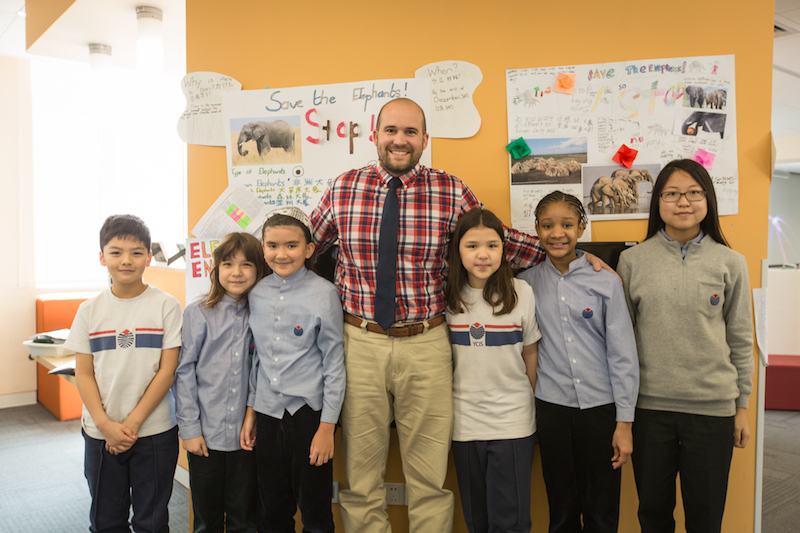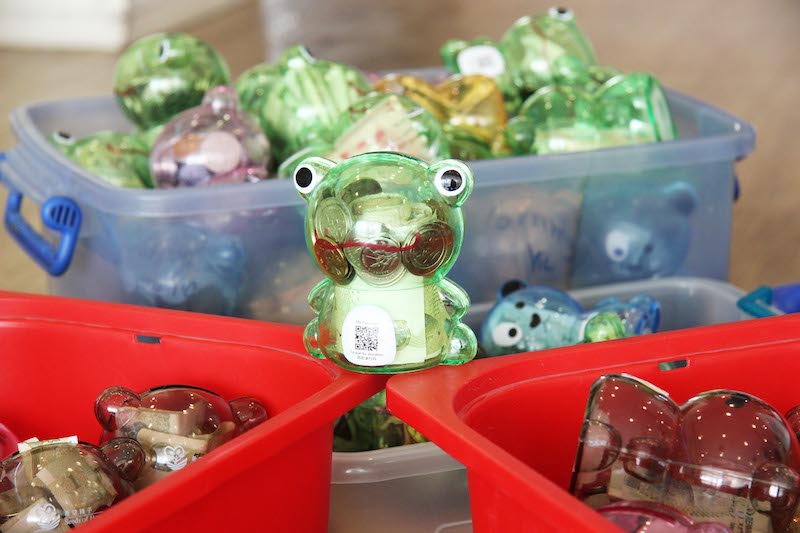Our current pace of technological advancement promises unfathomable innovation. The Internet and mobile devices have transformed the way we live, learn, and work, yet studies show that the excessive media exposure enabled by these devices, combined with a shift in family structures, change in societal attitudes, and pressure to outperform the competition means children are maturing more rapidly than ever before.
To help them cope and transition smoothly to adulthood, there is an urgent need to ensure that each child grows up surrounded by positive role models in an environment that promotes values such as respect, responsibility, and optimism. While some may argue that these ‘good character’ traits are intrinsic, the majority agree that these can be learned or enhanced in the right home or school environment. Parents play a key role in manifesting these values in the lives of their children, however, since children spend a considerable part of their time at school, it is also the responsibility of educators to help develop such values besides expanding the student’s academic knowledge base.

Character education is incorporated throughout the school day at kindergarten, primary, and secondary school level
Yew Chung International School of Beijing (YCIS Beijing) places Character Education at the center of its ethos and strategic vision. Character Education includes a wide range of approaches such as whole child development, service learning, social literacy, emotional well-being, moral and citizenship education. The goal is to help young people become responsible, caring, and contributing citizens. “[Our] concepts, which are derived from the best of eastern and western philosophies, are universal in nature”, says Mr. Casey Fanning, Character and Moral Education Development Officer at YCIS Beijing (pictured with students in the lead blog image). Character Education doesn’t always mean a separate lesson scheduled into timetables. “To be effective in schools, Character Education must be modeled on everyone [staff, parents, students, and community members] and be part of every school day”, Mr. Fanning emphasizes.
Character education is embedded into the core curriculum in kindergarten, primary, and secondary school. “Each month, the primary school students are exposed to a different positive character trait through daily classroom activities”, adds Mr. Fanning. The trait of the month is deliberately embedded into the lesson plan and the teachers use methods such as direct instruction, modeling, and practice of this trait to help students absorb the concept. The traits are the main focus of weekly assemblies with students demonstrating or discussing their understanding of said trait.

Mr. Casey Fanning with some of the YCIS Beijing students
YCIS Beijing’s unique Learning Communities model provides plenty of opportunities for effectively implementing Character Education in primary school. Year 4 students Emma and Zoe say that they are able to interact more with their culturally diverse group of classmates in the large new learning community space and work on assignments in groups with their friends. When asked if such group work leads to quarrels amongst students, their teacher, Ms. Sian Edwards, said: “Conflict can be turned into learning opportunities; we can help students develop qualities like cooperation and a skillset to manage a wide range of interactions”. Learning Communities also facilitate critical thinking, decision-making, consideration, and discussion of moral dilemmas. “Teachers are able to observe and build caring, one-on-one relationships with students and customize Character Education as per each individual’s needs” she added.

YCIS Beijing students are encouraged to find ways to give back to the community, such as the Piggy Bank Fund Raising Initiative
In addition to building an understanding of what good character means, it is also important that students have opportunities to translate these personal traits into actions that benefit others. As part of the Creativity, Action, and Service (CAS) requirement of the International Baccalaureate (IB) curriculum, secondary students are required to proactively find ways in which they can personally give back to their community. The YCIS Challenge is designed to mirror this requirement for non-IB students. “I think it is so important to reach out, to get to know the world outside your own community and help out people who aren’t as fortunate,” says Year 8 student Tracy.
Last year, Tracy was part of the Student Council group that organized fundraisers for various causes. She believes that a truly great person not only amasses a wide range of academic experiences but also a variety of real-life experiences. At YCIS Beijing, students are encouraged to experience the real world and explore the meaning of character for themselves. A keen piano player, Tracy is currently practicing hard for her performance at the Seeds of Hope Charity Gala that will take place on April 21 at the Four Seasons Hotel in Beijing.

The annual concert is bringing the entire network of YCIS schools — the staff, parents, and students — together to support the school’s Seeds of Hope charity, which was created in 2008 in response to the catastrophic earthquake in Sichuan Province. The funds raised by the 2018 Gala will be used to help purchase land and construct a school in an impoverished area outside Manila. In addition to raising funds, the Gala will celebrate the 85th anniversary of the Yew Chung Educational Foundation (YCEF).
The Seeds of Hope Charity Gala, hosted by Yew Chung International School of Beijing and Yew Wah International Education Schools, takes place at Four Seasons Beijing on April 21. Tickets are priced at RMB 1,000 for an individual ticket or RMB 10,000 for a table and can be purchased via the following link: yoopay.cn/event/54868243
This post is sponsored by YCIS Beijing.
Photos: Uni You





